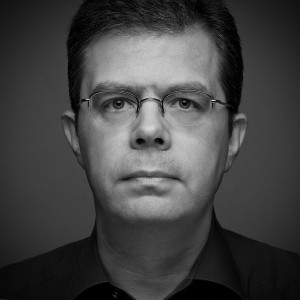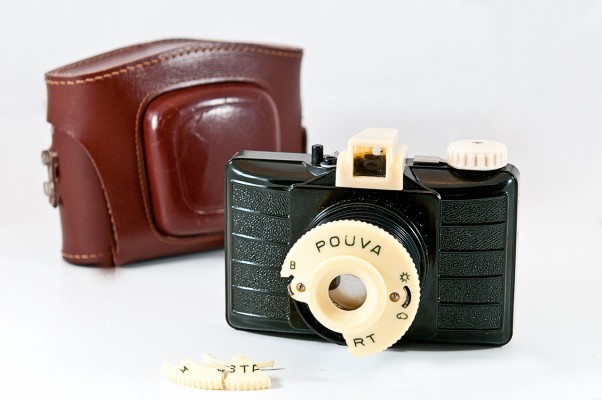Oliver M. Zielinski – Photography

Oliver was born and raised in the Berlin area in Germany. As a graduated journalist and trained banker (rare combination, right?) he started his own public relations business Z MEDIA in 1996. Since he had been a photo enthusiast from his highschool years on and photography assignments started to roll in the young agency’s business, he decided to develop PrimePhoto as a service for his clients. Most of these assignments were about staff headshots and event documentation as well as architecture and product photography. Very often he uses his mobile photo studio. From 2013 on Oliver specialized on photographing architecture, interior design and real estate which is reflected at PrimePhoto.de.
Other likings in the field of photography have now found their home at this very website (PrimePhoto.com). Oliver M. Zielinski was always hunting for photographs of beautiful landscapes and cityscapes as well as of travel destinations and entertainment events which could easily be used as supplementary elements for his agency work. It is no secret that this corresponds quite a lot with his personal photography preferences.
When Oliver M. Zielinski fully switched from analog to digital photography, which was about 2004, he also started first social media activities. Since he is a Nikon shooter (in the third decade by now) he became an active member of Germany’s quality Nikon forum Nikonpoint (by this time still called “Coolpix-Forum”). Not only he follows and participates in discussions on photo news or gear handling and in photo critique – this lively communtiy also organizes photowalks and workshops which he enjoys a lot. And it offers the opportunity to check out new gear without any investment because Nikonians are compatible with each other.
At the same time he got in contact with renowned American photographer Trey Ratcliff and was asked to write a German version of his award winning HDR tutorial. Later he became the translator of a famous standard book on speedlight photography – Lighting 101 by David “The Strobist” Hobby and of Larry Lohrman’s What Realtors Need to Know about Photography which exactly matches one part of his business.
How it all began
It all started with a POUVA START view finder camera loaded with 6×6 rollfilm which his father gave to him as a gift when he was 7 years old. But the happiness about this did not last very long because the plastic camera body and lens barrel became a victim of his playful friends.

Several years later as a bored teenager he browsed through a book on photography basics. Suddenly he’d got the bug. Exposure time, aparture, film speed, focal lengths, extenders, depth of field – it all got really exciting and he could not wait to check all the theory with a real camera. The Exa 1a of his father – a fully manual 35mm SLR with a 50 mm 2.8 lens – was used more and more rarely by that time and went creepingly into Oliver’s possession.
At some point the hardware needed to be upgraded and thus in the late 80s he bought his first own camera: a Praktica MTL 5B, which is a manual SLR with a built in light meter. Interchangeble lenses and other accessories found their way into the camera bag very soon. During his time as a student and as a working journalist this solid brick of a camera had proven perfectly.
In late 1991 Oliver felt that it was time to enjoy himself. He packed all his Praktica equipment in a big bag and traded it in for his first Nikon. The F-601 AF and later a black Nikon F80 D accompanied him over hundreds and hundreds of films and followed him truely and almost without any failure on photo adventures around the world and no flaws at all despite lots of tough business action. These cameras had to tolerate several mediocre zoom lenses but they went to old strengths only when the original AF Nikkor 50 mm 1:1,8 latched into the F-bayonet. Btw: This lens is still in use with his current Nikons and is responsible for tack sharp images with nice bokehs, although the AF speed seems a little outdated for today’s technology.
From that time on Oliver shoots travel, landscapes, cityscapes with passion – first on negative film, later mainly slide film, and now ofcourse digital.
By the turn of the Millenium digital photography gained importance and thus offered in the professional sector the chance to transfer photographs directly and therefore lossless to computers. Oliver decided to wait until his favorite SLR maker would present a reasonable DSLR in the store shelves. But something else came up: In late 2003 an inexpansive offer crossed the German internet: A Canon PowerShot S50 finally put Oliver on the digital track. This robust lady in her precious black alloy dress (in Europe up to that point only the boring silver version was available) had all the features needed and was able to create 5 MP images in RAW format. This was essential for better photographs and made it much easier to concentrate on the subject matter.
Big thanks to Canon for this introduction but when Nikon hit the market in spring 2004 with an excellent entry level DSLR, all the waiting had paid off. Familiar haptics, the handling concept already known from the F80 and the already existing lens collection made it easy to decide: Before summer Oliver got hold of a Nikon D70.
Four years and 40.000 exposures later a Nikon D300 completed the equipment and became Oliver’s first choice. Another eight years later it was superseded by the more compact Nikon D5300 with it’s swivel monitor. The older models, now are the rarely used backup models but still work perfect.
Also his trip through the optical scene has reached it’s temporary end. First Oliver wanted to replace the D70’s kit lens AF-S DX Zoom NIKKOR 18-70 mm 1:3,5-4,5G ED-IF as well as other existing zooms with fast prime lenses. Soon he came to the conclusion that the permanent lens change is rather obstructive for an active photographer. At several workshops he met photo professionals who made best experiences with the standard combo of the f/2.8 FX lenses 14-24, 24-70 und 70-200 mm. Transferred to his DX sensor he found the following solution: Nikon AF-S DX Zoom-Nikkor 10-24mm 1:3,5-4,5G ED (okay, not that fast but very sharp at every range). The upper end has to wait, by now it is covered by his travel zoom lens Nikon AF-S 28-300mm 1:3.5-5.6G ED VR quite reasonably.
This is the current gear list
Cameras
Nikon D5300
workhorse camera
Nikon D300
backup for the worst case scenario
Nikon D70
backup backup for the worst case scenario
iPhone SE
not a real camera, just mentioned not to forget
Lenses
Nikon AF-S DX Zoom-Nikkor 10-24mm 1:3,5-4,5G ED
tack sharp all over the image and the focal lengths
AF NIKKOR 50 mm 1:1,8D
ol’ friend for low light
Nikon AF-S 28-300mm 1:3.5-5.6G ED VR
the all purpose weapon
Camera Bags
Nikon Crumpler “That”
cool small shoulder bag for city tours, camera body plus Lens plus small stuff, nice: modest Nikon branding
Camera Support
Manfrotto 055XPROB with Manfrotto 486 Compact Ball Head with RC2 Rapid Connect System
sturdy alloy camera stand, now used in studio
Sirui N-2204
the clever man’s carbon alternative, light weight and small packing size, ideal for travel and photowalks, and one leg can be converted into a Monopod
Digital Darkroom
EIZO 24″ CG241W-BK Screen
Wacom Intuos 5 M Grafiktablett
Spyder5Elite
Adobe Creative Cloud Photo